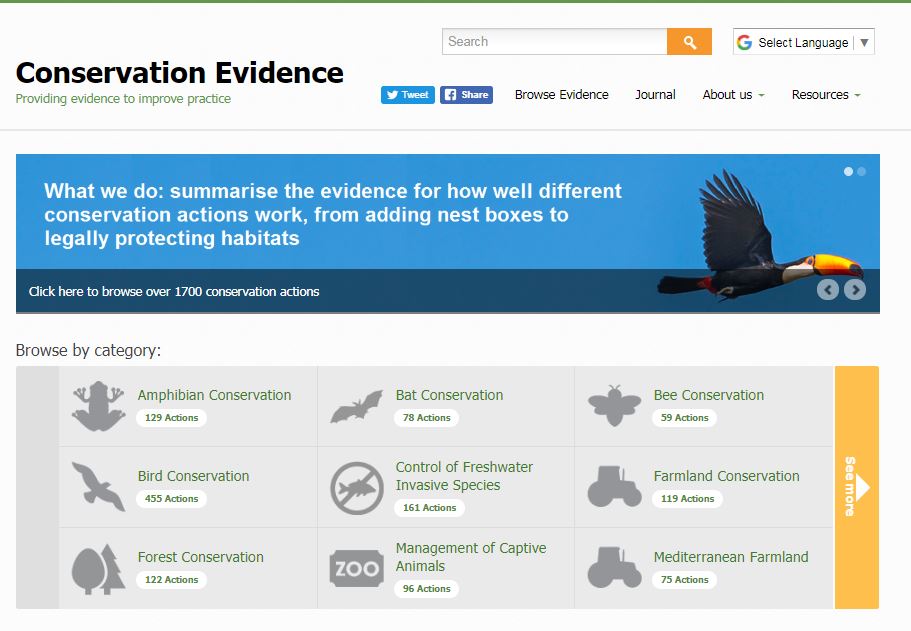Policy support tool
Conservation Evidence

Conservation Evidence (www.conservationevidence.com) collects and summarises scientific evidence on the effectiveness - or otherwise - of conservation actions. Concise, plain-English accounts of how well conservation actions have worked can be used by decision-makers to make conservation planning more effective. Conservation actions are defined as ‘anything a conservationist or policy-maker might do to conserve or restore biodiversity’, and actions are considered at a fine scale, such as ‘use streamer lines to reduce seabird bycatch’ or ‘install overpasses as road crossing structures for bats’. As well as direct species and habitat management actions, social and legal interventions are covered, such as ‘legal protection of bird species’ and ‘adopt certification of forests’. This project aims to cover actions for all species groups and habitats globally, and has currently covered about two-thirds of this ( as of 2018).
Conservation Evidence works to make conservation efforts more effective, by making evidence on the effectiveness of conservation actions accessible and digestible. The project collates, reviews, and disseminates the most up-to-date science on ways to conserve and restore global biodiversity – all free at the point of delivery. This allows decision-makers to identify the most effective actions and to discard less effective approaches.
A 2015 paper tested whether conservation practitioners focusing on bird management were willing to use a synopsis of relevant scientific literature (our Bird Conservation Synopsis) to inform their management decisions. In on-line surveys, they asked 92 conservation managers, predominantly from Australia, New Zealand, and the United Kingdom, to provide opinions on 28 management techniques that could be applied to reduce predation on birds. Their opinions were solicited before and after giving them a summary of the literature about the interventions' effectiveness. The overall effectiveness and certainty of evidence for each intervention were scored through an expert elicitation process-the Delphi method. The effectiveness scores were used to assess the practitioners' level of understanding and awareness of the literature. On average, each survey participant changed their likelihood of using 45.7% of the interventions after reading the synopsis of the evidence. They were more likely to implement effective interventions and avoid ineffective actions, suggesting that their intended future management strategies may be more successful than current practice.
Walsh, J. C., Dicks, L. V., & Sutherland, W. J. (2015). The effect of scientific evidence on conservation practitioners’ management decisions. Conservation Biology, 29(1), 88-98.